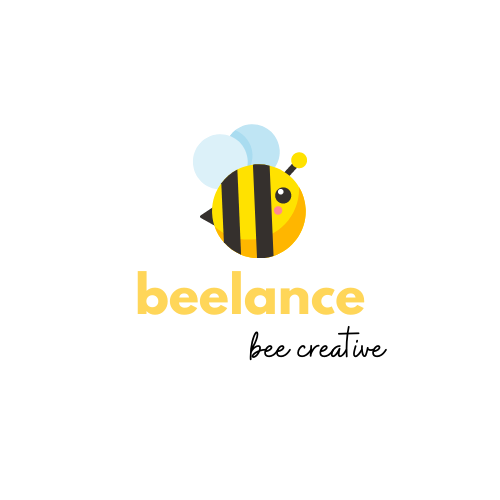Do you speak a language fluently? Do you wish to learn a new language with the help of a native speaker? Then you’re in the right place. Learning a new language can be a daunting task for most people, but it doesn’t have to be that way. There are many ways through which one can learn a foreign language effectively. For instance, learning from a native speaker is one of the best ways to learn quickly and effectively. A native speaker will expose you to authentic conversations that help you build your own conversational skills more quickly than if you were speaking from an textbook or via audio file. In this blog article we will discuss about how one can learn a new language with native speakers.
What is a native speaker?
A native speaker is someone who has grown up speaking the language fluently. Native speakers can be found in any country that has a native language. Learning languages with native speakers teaches you the correct way to pronounce words and use grammar correctly. The most authentic way to learn a new language is to use a native speaker; you will learn more quickly and effectively. Native speakers may not be an option for you if you choose to learn a language from books or from audio files, but if you choose to learn with a native speaker you are in for the best experience! Native speakers are the best way to learn a new language from scratch.
Benefits of Learning a New Language with Natives Speakers
– Realistic – Studying a language with a native speaker is more realistic than studying with books or with audio files. You will be exposed to authentic conversations and you will learn how to speak and write in a language using the correct words and grammar. You cannot improve your spoken accent if you only study with books or audio files. – Authentic
– Studying with a native speaker is the most authentic way to learn a foreign language. You will be exposed to real conversations between two people speaking the language. You cannot learn how to speak a language from books or audio files.
– Original – While looking for a native speaker for language learning you can choose between meeting a native speaker face-to-face or communicating with them via Skype, Google Hangouts, or other video-calling platform. A face-to-face conversation is the most original way to learn a new language.
– Convenient – It is much easier to learn a new language with natives speakers than to study with books or audio files. You can have one-on-one conversations with a native speaker and it is not as time consuming as studying with books or audio files.
– Interactive – When you are learning a new language with a native speaker you will have authentic conversations and you can ask lots of questions so you can interact with your language partner and ask tons of questions to make sure you are learning the correct way to speak your new language.
– Less Expensive – Learning a new language with a native speaker is less expensive than studying with books or audio files. One-on-one face-to-face conversations are less expensive than studying with books or audio files.
– Natural – When you are learning a language with a native speaker you are also learning about culture and customs of the native speaker’s country and society. Studying a language with a native speaker gives you the opportunity to learn about the history and culture of a country.
Where to find native speakers for language learning?
Finding native speakers for language learning can be a challenge if you are new to the world of language learning. You can look online for native speakers or you can attend an international language festival or an online language school.
Another way to find native speakers for language learning is to attend a language school that offers language exchange program. In a language exchange program, you can choose to exchange languages with your language partner. You can also ask your friends who speak a different language if they know anyone who would be willing to teach you a new language. You can also visit local cafes or book stores that are popular among the native speakers and language learners. There you can find native speakers who are open to language exchange.
Don’t be afraid of speaking with mistakes
When you are speaking with a native speaker for language learning, don’t be afraid to make lots of mistakes. If you are speaking with a native speaker in a language that you do not know well, it is normal to make lots of mistakes. It is completely fine to make mistakes when speaking with a native speaker.
When you make mistakes when speaking with a native speaker, do not get frustrated. Instead, talk over the mistake and explain how you would like to say the phrase or sentence correctly. You can also use gestures to help a native speaker understand what you are trying to say. Gestures can be as simple as tapping your fingers together while you try to explain something, or drawing a picture while you try to explain something. When you are speaking with a native speaker, ask lots of questions so you can make sure you are learning the correct way to speak your new language.
Improve your spoken accent
Learning a new language can be a daunting task for most people, but it doesn’t have to be that way. A native speaker will expose you to authentic conversations that help you build your own conversational skills more quickly than if you were speaking from an textbook or via audio file. There are many reasons why learning with a native speaker is the best way to learn a new language. When you learn from a native speaker, you’ll improve your accent, learn some slang words and get used to the sound of the language.
Write your new words and phrases down
One of the best ways to learn a new language is to write it down. When you write down words and phrases you are really committing them to memory. You are also reinforcing the words and phrases with repetition, a key part of learning anything new. It can be helpful to use a dictionary when you begin to write down words and phrases, but once you’ve committed them to memory you can try writing them down again to make sure you remember them. It’s also a great way to expand your vocabulary and get to know the words and phrases used in your new language. It’s also helpful to find some other words and phrases that are close to what you’re interested in so that you can draw inspiration from others and use them in your own vocabulary.
Keep practicing with native speakers and real people
Learning with a native speaker is great, but it’s important to remember that you’re still training your brain to think and speak this new language. As you continue to practice with native speakers, you can also use video chatting tools like Google Hangouts or Skype. It’s also helpful to find a study buddy who can help you stay on track with your studies and offer encouragement when you need it.
Another great way to practice is to find a walk-in Spanish class near you. There are also many online tools that can help you practice and learn different languages. Anki is a great program that helps you memorize words, which can then be used to answer questions or test yourself on what you’ve learned. Another good tool is Memrise, which is similar to Anki and can help you learn vocabulary related to many topics, including Spanish.
Go to a country where the language is spoken often
One thing to keep in mind is to take advantage of the opportunity to learn a new language whenever you have the chance. One of the best ways to learn a new language is to immerse yourself in the language and culture. Travel to a country where the language is spoken often and immerse yourself in the activities that are specific to that culture. You can also watch television shows and movies in that language and continue to read books written in that language.
Make sure to use your language in conversation whenever you can and avoid using the one that you’re currently learning. This will help you to avoid forgetting what you’ve learned about your native language and also helps you to practice your new language. It’s important to remember that your brain needs to be in two places when you are trying to learn a new language, so take advantage of your free time to immerse yourself in your new culture.
Read more posts about learning a new language!

